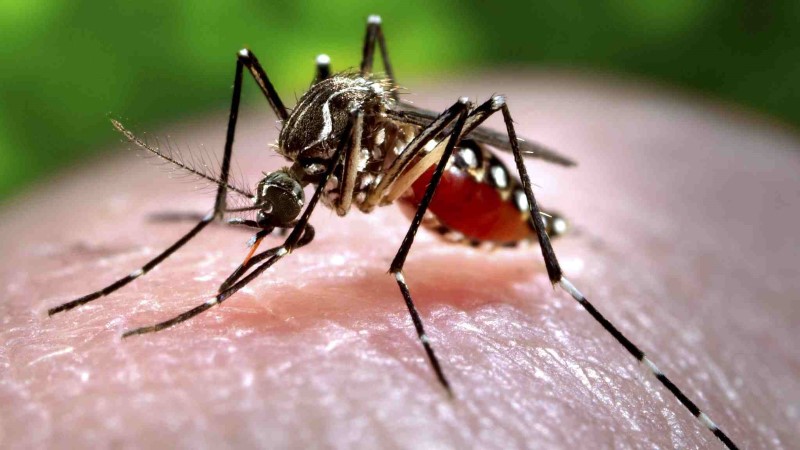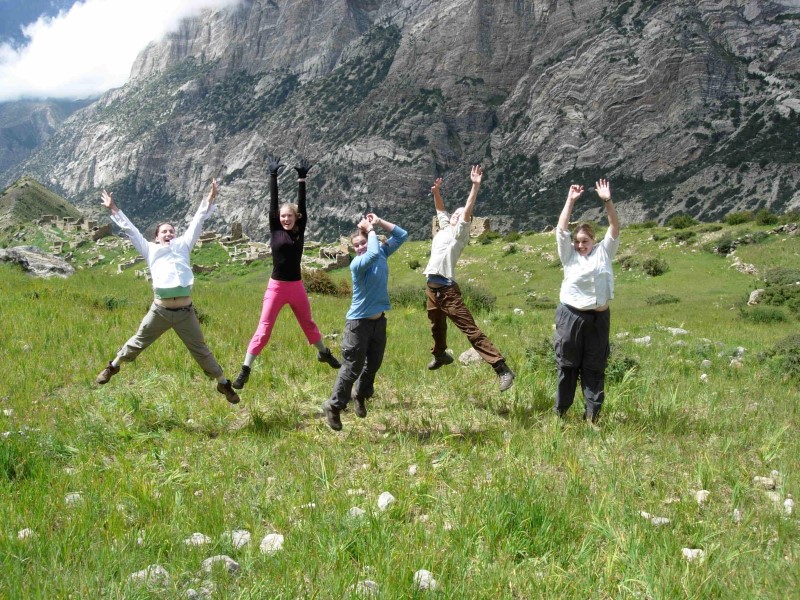Have you ever thought of breaking free from your regular, hectic schedule and just escape into Nature? Camping is the best way to do this. Of course, camping is always fun and fulfilling when you have friends, family, or loved ones to camp with. Yet, you must admit—a camping trip is not fun when mosquitoes bite you all the time. Zika is one of the diseases you can acquire through a mosquito bite. It might be a tiny bite to you, but mosquito-borne diseases take a large toll.
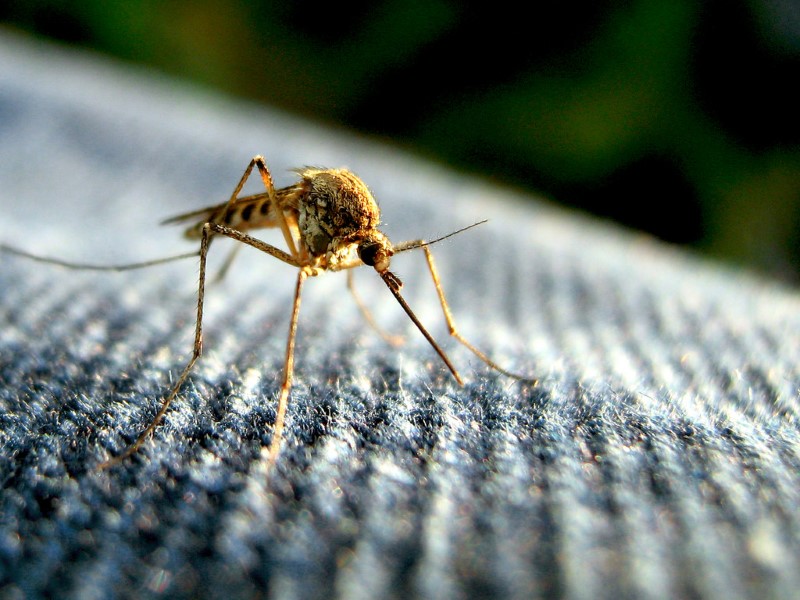 Various chemoprophylactic drugs or vaccines are accessible against several insect-borne diseases like malaria, yellow fever, and Japanese encephalitis. Travelers are advised to use protective measures and repellents against biting insects. Chemoprophylaxis for malaria has variable effectiveness, which depends on bioavailability, compliance with medication, and drug resistance. Unfortunately, there are no preventive vaccines against other insect borne diseases such as West Nile, dengue, chikungunya, and Zika. Even diseases transmitted by ticks (relapsing fever, Lyme borreliosis, and tickborne encephalitis do not have preventive measures.
Various chemoprophylactic drugs or vaccines are accessible against several insect-borne diseases like malaria, yellow fever, and Japanese encephalitis. Travelers are advised to use protective measures and repellents against biting insects. Chemoprophylaxis for malaria has variable effectiveness, which depends on bioavailability, compliance with medication, and drug resistance. Unfortunately, there are no preventive vaccines against other insect borne diseases such as West Nile, dengue, chikungunya, and Zika. Even diseases transmitted by ticks (relapsing fever, Lyme borreliosis, and tickborne encephalitis do not have preventive measures.
Protective Measures Against Mosquitoes
When you are camping, you must stay outside. The outdoors usually harbors more than trees and bushes. As a responsible member of your family, you should follow certain measures in preventing mosquito bites and avoiding insect-borne infections. Read on!
- Spatial repellents and insecticides. Spatial repellents contain allethrin and metofluthrin, which augment mosquito coils, aerosol insect sprays, and vaporizing mats. They can clear areas of mosquitoes or even repel mosquitoes in a specific area. As a traveler, you should supplement these products with proper clothing, repellent, and mosquito nets. Always use insect sprays properly and carefully and avoid inhalation of smoke or spray.
- Keep away from outbreaks. If you want to camp outside of the country, then be aware of the places where there is detected foci of an epidemic and outbreaks.
- Wear proper clothing. When you’re camping, it is very tempting to wear sleeveless shirts, short pants, and sandals. Always wear long pants, hats, boots, socks, long sleeves, and closed shoes. You can also treat your gears and clothes with permethrin for more protection.
- Know the peak exposure places and times. You can reduce your exposure to biting insects if you modify your activity locations or patterns. There are still peak biting times, even if mosquitoes can bite at any time. Take note that mosquitoes that carry chikungunya and dengue bite during the day. Those that transmit malaria bite during twilight hours and in the darkness. You should avoid going out during these peak biting hours or use an effective repellent. Also, make sure that you avoid vegetated areas such as woodlands or grasslands because chiggers and ticks live here.
- Check yourself and your companions for ticks. Be a responsible camper and check yourself for ticks. Check your companions during your camping trip. If you find ticks, remove them immediately. Doing so promptly can prevent you from acquiring infections. Make sure you shower within two hours of visiting an area infested with ticks decreases the risk of you acquiring tickborne ailments.
- Use mosquito nets. When you camp, you should use mosquito nets over your sleeping bags. Tuck the mosquito net under the sleeping bag to be sure that the mosquitoes are kept out. You can also purchase pre-treated mosquito nets before you leave for your camping trip.
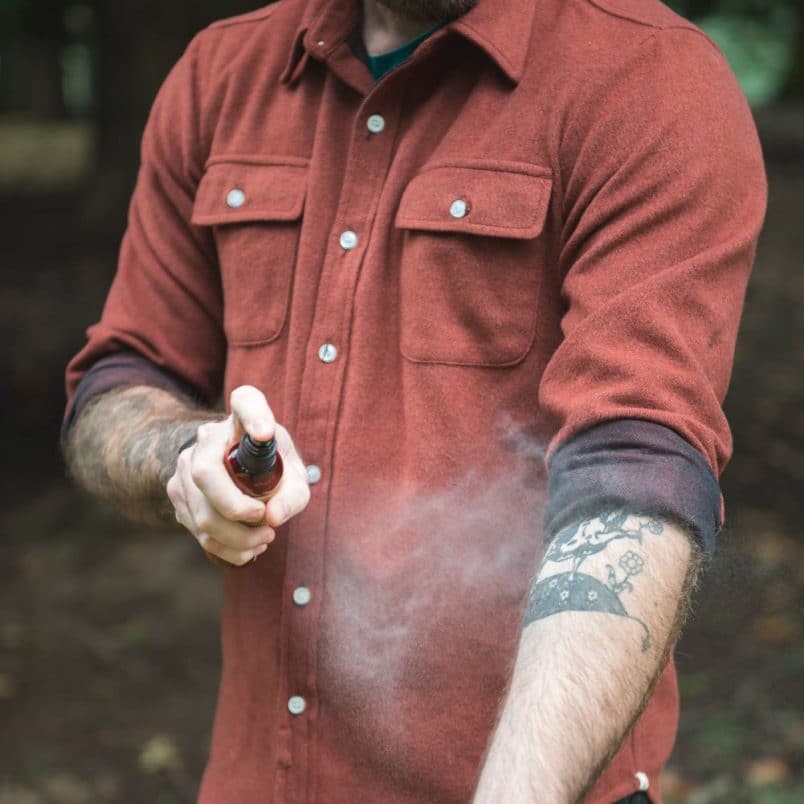
The CDC there are EPA-registered repellents that help reduce mosquito bites, to prevent mosquito-borne diseases Consider the following ingredients when you purchase repellents, which usually provide a lasting protection against mosquitoes:
- Picaridin. Also known as Icaridin and Bayrepel, picaridin.
- DEET. N,N-diethyl-3-methyl-benzamide or N,N-diethyl—tolua-mide that is present in Ultrathin, Off!, Cutter, and Sawyer.
- IR3535. 3-[N-butyl-N-acetyl]-aminopropionic acid, ethyl ester is its chemical name. You can find it in SkinSmart.
- Oil of Lemon Eucalyptus. Known as para-menthane-3,8-diol or PMD. Pure oil of lemon eucalyptus is not registered as a repellent with EPA.
IR3535, OLE, and PMD are characterized by EPA as biopesticide repellents. Picaridin and DEET are classified as conventional repellents.
Efficacy Repellent
The duration of protection and efficacy of repellents vary among repellents against ticks and mosquitoes. They are affected by exposure to factors such as water, ambient temperature, abrasive removal, level of activity, and amount of perspiration. Repellent products with less than 10% of the active ingredient may just have limited protection, from one to two hours. Those that are microencapsulated (controlled release) or sustained release have a lower concentration, but provide longer protection. CDC (Center for Disease Control) recommends using repellents with greater than or equal to 20% DEET on your exposed skin for disease and bite prevention.
You my experience variations in protection from various repellent products. Whatever product you use, if you start to get bitten in your home, at work, or at your campsite, you must apply it according to the detailed instructions. You should avail of repellents before you leave for your camping trip.
Ordinarily, repellents can be found in supermarkets, drug stores, hardware store, and online. You can avail of more products from military surplus stores, camping goods stores, and sporting goods stores. If you intend on purchasing repellents in another country, search for the active ingredients indicated above the labels.
Camping and Mosquitoes Do Not Mix Well
When you are camping, you take out all your skills from the closet and pack them with you when you leave. Preventing mosquito bites is one important camping skill. Enjoying the bonfire or a simple walk is never possible when you are being swarmed by mosquitoes. They are annoying and you know that they suck your blood. Their bites are itchy and unsightly. People who have allergies to mosquito bites can have worse symptoms. And if you get luckier, you may end up being infected with mosquito-borne diseases such as dengue or the West Nile Virus. When you camp, it is best to avoid mosquito bites.
Avoiding Mosquito Bites During Camping
Years ago, it was easy to prevent mosquito bites. All you needed to do was apply DEET all over yourself and you are bite-free. You can also soak your clothes in it. Then, people started realizing the toxicity of DEET to the environment and to the user. This paved the way for more natural mosquito prevention methods during camping, such as natural repellents, common sense, and barrier methods.
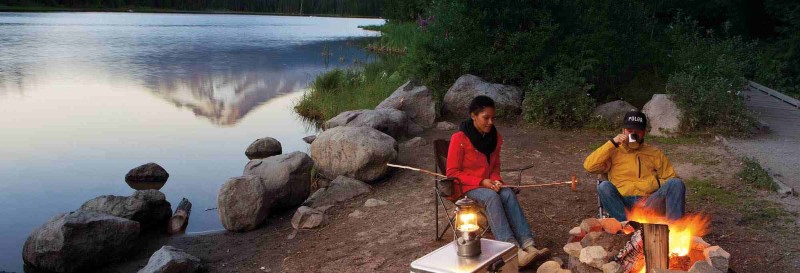 Common Sense in Mosquito Bite Prevention
Common Sense in Mosquito Bite Prevention
If you think of mosquito behavior and habits, you can prevent mosquito bites effectively:
- Know where to set up camp. As you know, mosquitoes breed in stagnant water. Look around before you finally choose a campsite. See if there is any stagnant water in the nearby area. If there is, look for a place that is dry or has a running stream. Also. Find a place that is not sheltered from the wind. A strong, steady breeze keeps mosquitoes from landing successfully on you. A clearing would be a good campsite.
- Know what to wear. Remember that mosquitoes are attracted to dark colored clothes. Be sure to choose light colored clothing during your camping trip. If you wear light colors, you will not only repel mosquitoes, but you will also feel a lot cooler, especially if it is hot out.
- Know what to eat. Take note that mosquitoes are attracted to the smell of foods that are rich in potassium. During your camping trip, avoid bringing or eating bananas. Once you eat bananas, the potassium seeps through your skin. Thus, attracting mosquitoes. Garlic is known effective natural repellent not only against vampires but also against mosquitoes. Some say that it is the scent of the garlic that keeps the mosquitoes away.
- Know when you should take cover. If you have chosen a mosquito-infested area for a campsite, you should stay inside during peak hours of biting, which is at dusk and at dawn. Stay in your tent or camper if you want to keep the hungry mosquitoes from sampling your blood. This way, you also prevent the possibility of acquiring a mosquito-borne disease such as Zika. It does not have to be boring if you’re inside. Board games and scary stories are an order. If you want to stay outside, build a large, smoky campfire to keep all bug away from your skin.
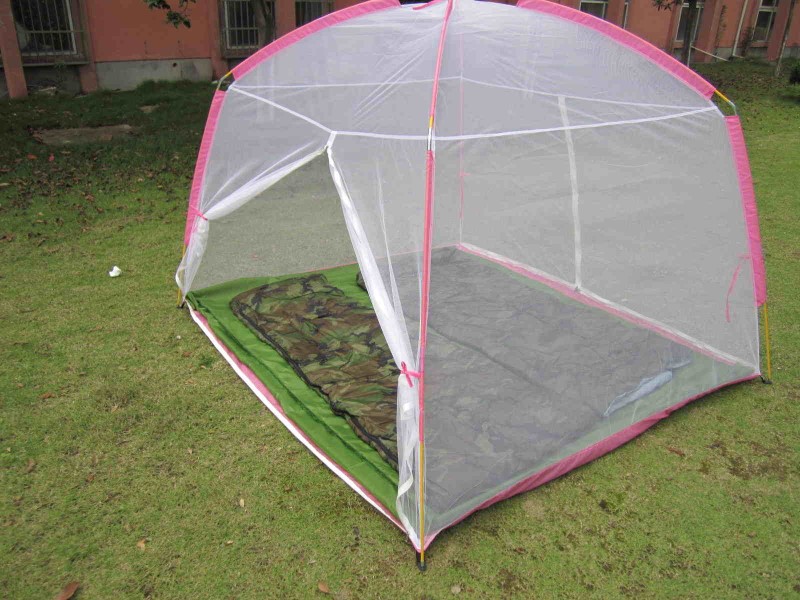 Barrier Methods
Barrier Methods
The primary goal of the barrier method against mosquitoes is to keep mosquitoes from biting your skin. Here are some of them:
- Wear bug head nets. Bug head nets are comfortable and effective. They can also keep your hair in place. Not everyone likes what bug head nets look like, but when you are being swarmed by mosquitoes, bug head nets protect you completely. Wearing it won’t make you worried about passing through a mosquito-infested area.
- A screen tent is a good investment for your camping trip. Just make sure that it is always fastened to your tent at any time of day. This is the best way to play and eat in peace.
- Wear clothes that are treated with repellents. This is a new barrier method, which is very innovative. It prevents mosquito bites by impregnating the synthetic materials with a chemical (permet). Amazon is where you can usually purchase treated clothing such as bandanas. These treated items do not have an odor, so you won’t be irritated while wearing them during your camping trip.
- Wear long pants and sleeves. In a mosquito-infested campsite, you should wear long pants and long sleeves. Tucking your pants into your socks is an effective way of keeping the ankle-biting Zika mosquitoes away as well.
- You can also purchase a permethrin spray for your camping trip. A bottle of this product can be sprayed on your tent or your clothes. Permethrin is not absorbed into the skin that quickly, so it is not hazardous to humans at all. It is quick to kill mosquitoes upon contact.
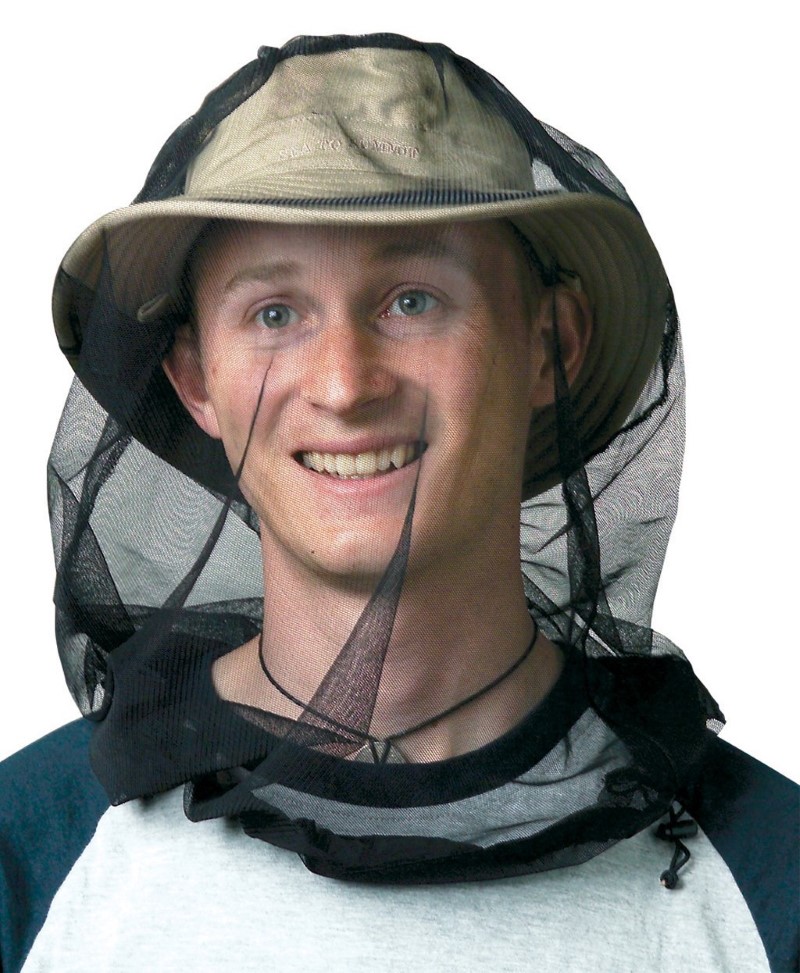 Repellents
Repellents
There are many kinds of mosquito repellents. There are synthetic and natural ones. Try one of each before your camping trip, so that you can find out which one can help you the most. Stay away from DEET based repellents because of its adverse effects from rashes, seizures, and even death. If you want to use DEET, use it sparingly. DEET repellents are available in wipe, spray, and lotion form.
You can also try citronella-based repellents or those that are derived from oils and plants. A new alternative to conventional repellents is the vitamin B1 patch. Just place the patch to your body. DO this several hours before you face the mosquitoes. Vitamin B1 is absorbed through your skin and is excreted through your pores. You can use patches and then wear the patches to reinforce your mosquito protection. The only downside to the vitamin B1 patch is that it is like an adhesive bandage strip, which must be peeled off eventually.
Sunscreen and Repellents
Take note that you should apply repellents according to the instructions indicated on their labels. You can use them with sunscreen. The sunscreen won’t even affect the effectiveness of the repellent. As of the sunscreen’s effectiveness, limited data shows that the SPR (sun protection factor) decrease by a third when it is used with DEET insect repellents. You should not choose a product that has both sunscreen and repellent. Because you should reapply the sunscreen, reapplying this product increases your exposure to the repellent, which is not good at all.
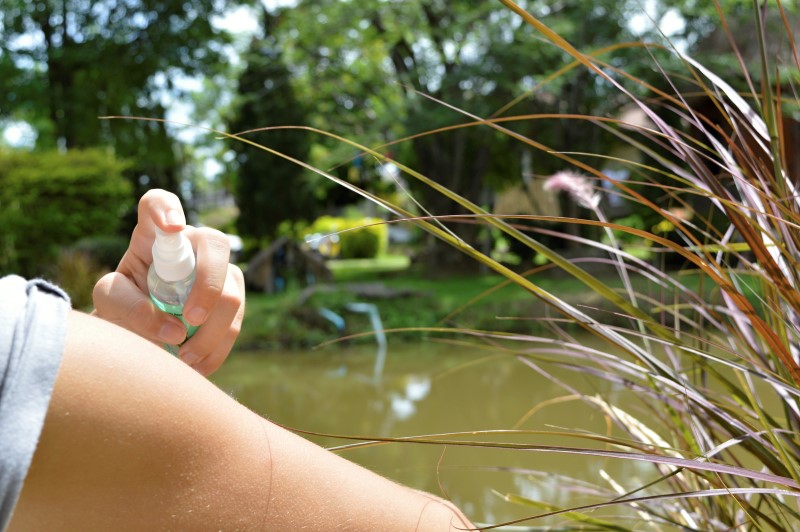
Precautions in Using Repellents
Here are some precautions in using mosquito repellents:
- Always follow the instructions on the label, including the application periods.
- Apply repellents only on exposed skin. Never apply in on skin that is covered by clothes.
- Never apply insect repellent on broken or irritated skin.
- Rinse your eyes immediately if the repellent gets into them by accident.
- Wash your treated skin immediately as soon as you get inside your tent or camper. Use soap and water.
- After swimming, apply the repellent again.
